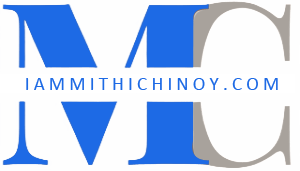
Are you trying to enhance your work performance and achieve better results for your organization? Are you grappling with the challenge of juggling various tasks as a freelancer? How can you streamline your workflow for optimal efficiency without compromising on quality?
Unlock your full potential by developing effective habits.
Boost your productivity and efficiency with daily performance habits.
Deliver high-quality work. Cultivate a habit of achieving your goals seamlessly. Practice these habits as they will help you stay focused and overcome challenges.
Let’s explore the 12 essential habits that have the power to increase your work efficiency.
Quit Multitasking
Some years ago, multitasking was touted as an essential skill to get ahead in life. But now, from our experience, we know better.
We now know that you can lose 40% of your highly productive time when you move from one task to another while multitasking.
By performing one task at a time, we make fewer or no errors. When our attention is no longer divided among several tasks, we can perform better and give improved results.
Sharpen Your Time Management Skills
Time management is a critical skill for freelancers. To manage your time well, set up a routine, demarcate your working hours and create a plan to carry out important tasks first.
If you’re working on a large project, break it down into smaller tasks and set a deadline for each one. With productivity tools, you can track the time you take for each task, set reminders, and always be organized.
Minimize the Number of Meetings
Though meetings are held to know the work progress, they are huge time-wasters. At these meetings, it’s not uncommon to find participants playing with their phones or chatting amongst themselves.
These days, with technology at hand, physical meetings are no longer required. For example, you can create small groups on WhatsApp and invite team members to share information for all to read.
Or, you could deliver a presentation on Slideshare, instead of having a largely attended meeting.
Alternatively, you could send out a series of emails providing information of various types to specific groups. You might find writing time-consuming, but that’s fine. At least, you aren’t wasting anyone else’s time.
Reward Yourself for Small Wins
You work hard, expecting praise from at least one quarter. Don’t wait for it anymore. Now, reward yourself for your big and small victories.
This will reinforce your commitment to work and you will stay motivated even in the toughest times. Buy a book, go out with friends for coffee, or take in a new show.
When you celebrate bigger wins, plan larger rewards like a weekend vacation, or buy yourself a tech gizmo.
Now that you’ve come this far and have begun tasting success, be consistent. Make rewarding yourself part of your freelance journey. Enjoy the ride!!
Identify Your Long-Term Priorities with the Eisenhower Matrix
The Eisenhower Matrix is a highly effective and productive tool. Also called the Urgent-Important Matrix, it is simple to use and helps you prioritize tasks based on their importance and urgency.
The matrix is designed to consist of four quadrants:
Quadrant 1–Urgent and Important Tasks
Under this quadrant, tasks are urgent and demand your immediate attention. They impact your goals significantly, so deal with them first.
For example, deadline-driven projects or urgent client requests.
Quadrant 2—Important but Not Urgent Tasks
These tasks do not have the urgency of those in Quadrant 1 but they are critical for long-term success. Here, you would set goals, make a plan or develop a skill.
Examples of tasks include strategic planning, skill development, and relationship building.
Quadrant 3—Urgent But Not Important Tasks
The tasks here are distractions. Though they may demand your immediate attention, they are not goal-specific. Delegate the tasks here and free up your time for important ones.
Some examples of tasks are interruptions like phone calls, emails, and small administrative tasks.
Quadrant 4—Not Urgent and Unimportant Tasks
The tasks here only waste your time. They can be great sources of distraction, so get rid of them as soon as possible.
By using this matrix, you can focus on tasks that matter. So, prioritize your tasks well and increase your productivity by allocating your time well.
Some instances of tasks here include mindless social media browsing, excessive meetings, and trivial activities.
Concentrate on the Most Important Tasks (MITs)
The rationale behind the Most Important Tasks is that a typical to-do list will consist of important and not-so-important tasks. By merely checking off items you complete on your to-do list, you will tick off some important and less important tasks.
You could finish checking off these items in a few minutes. Or you could spend all day checking off the easy ones and working hard on the urgent and important ones.
Instead, at the start of your day, choose the top three most important tasks that you simply must finish by the end of the day.
Bearing such tasks in mind, create a to-do list and ensure you check off all the items on it.
Practice Deep Work
The habit of deep work, a term coined by Cal Newport, significantly increases your efficiency level. It does this by letting you focus deep and hard to produce high-quality work in a short span of time.
In this state, you invest intense concentration and work without distractions on complex projects.
Deep Work Strategies:
You can use these deep work strategies to enhance your efficiency:
- Schedule dedicated sessions of deep work in your work calendar.
- Create an environment favorable for deep work. Look for a quiet corner away from all distractions.
- Set up routines to start and end your deep work sessions.
- Prioritize tasks and allot focused time for the most important tasks of the day.
- Train your concentration and attention using mindfulness techniques.
- Use productivity tools to block all kinds of distractions.
- As you practice deep work, try to increase the duration of each session.
- Set aside time blocks for deep work sessions. Allot about 60-90 minutes to dedicate yourself to your complex project. Eliminate all distractions, work intensely and achieve your milestone.
- Break up long work sessions into small 25-30 minute micro-sessions. After each session, take a short break. This helps you return to your work with renewed vigor and you’re more efficient.
Learn to Refuse
As an efficient freelancer, it’s possible that you may receive several projects or opportunities almost together. The thought of working on so many projects could be exciting, but the reality is that you may bite more than you can chew.
This is the time when you need to refuse some clients, no matter how difficult. This will give you sufficient time to focus on the projects you’ve accepted. You’ll also have enough time for your most important tasks.
When you work on fewer projects, you spend highly productive and focused time on important things. By doing low-value work all day, your energy is unnecessarily sapped and you don’t earn enough. Instead, opt for a few high-value tasks, stay productive and earn more.
As you proceed with your freelancing career, you learn your most valuable skill and invest time and effort into doing it best. This means that you practice this one habit to the exclusion of other smaller ones, particularly if they align with your goals.
Set up a Morning and Evening Routine
By setting up a morning and evening routine, you develop a habit of doing something productive at the start and end of your day. When your day starts, you can review your mail, write up your to-do list, and allocate tasks for the day on priority.
When your day ends, review your mail, your day and your to-do list. See how much progress you have made so that you can improve on it the next day. Once you set a pattern for this, you automatically become more organized, and spend your time more judiciously and productively.
Prioritize Self-Care
While you work hard to achieve your goals, it is equally important that you take care of yourself. Instead of sitting for hours at your laptop, take a little time out of your schedule to exercise and incorporate a sport or relaxation techniques in your daily schedule.
Work hard to maintain work-life balance so that you get the most of both worlds. Socialize and network to widen your ambit of opportunities.
Keep Learning and Developing the Necessary Skills
Nurture a growth mindset and believe in the power of knowledge. Take courses, attend workshops, and acquire new skills. The more you grow your expertise, the better you will be able to handle complex projects and deliver superior-quality work.
Take Breaks and Rest Periodically
It’s important to incorporate regular breaks and rest periods into your workday. Avoid overworking or burning out. Take short breaks between tasks to recharge, stretch, or engage in relaxation techniques.
Additionally, ensure you get enough sleep, maintain a healthy lifestyle, and prioritize self-care.
Takeaway
To enhance efficiency and productivity at work, it is necessary to adopt habits for better work performance. By practicing the habits mentioned in this article, you can change the way you work.
Ready to revolutionize your work efficiency? Start implementing these 12 essential habits today and unlock your full potential for peak productivity!
